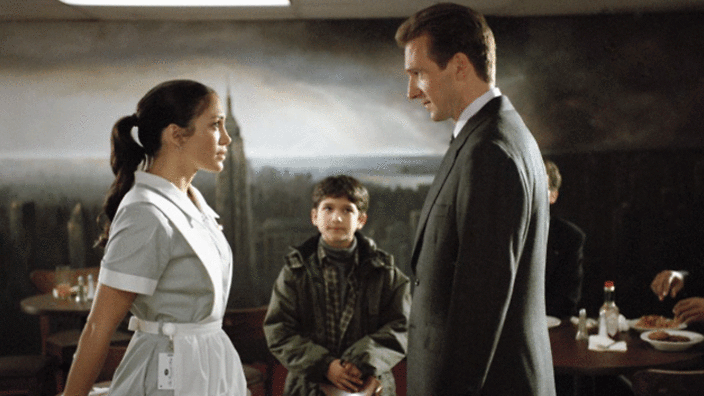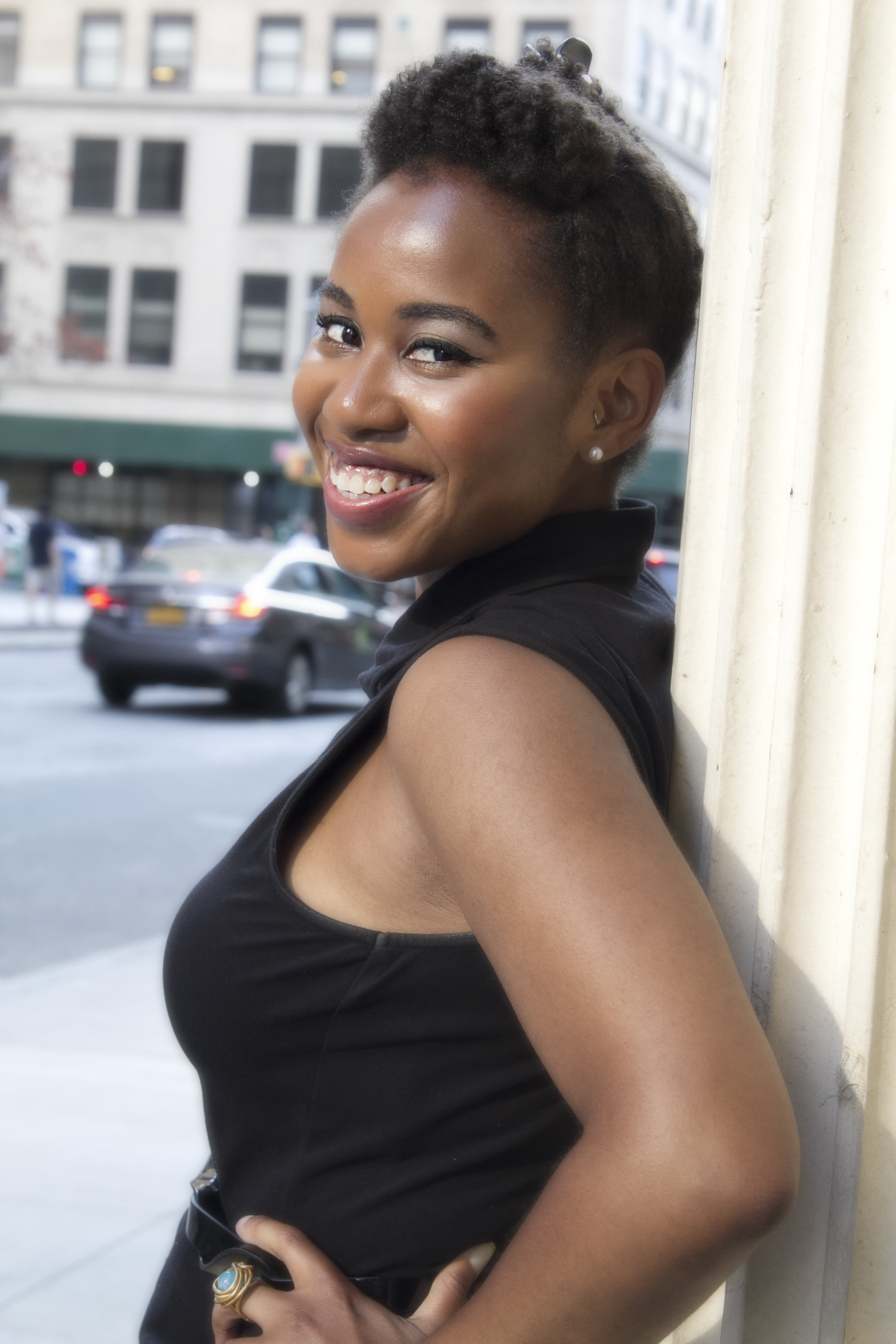The Media's Flawed Perspective of Black and Latina Women
It’s clear that in 2018 our entire society is influenced, inspired, and informed by the media. We check it daily from our mobile devices, watch it on the big screen, or read about in the papers searching for people that look like us and have shared the same experiences. As a woman of color, it has proved to be difficult to find that in media today, but even more so in the Black and Latina community when it comes to the representation of the Afro-Latina woman.
I had the great opportunity of reaching out to three women who have dealt with some of the hardships of being a woman of color. The first being entrepreneur and journalist, Janel Martinez. Janel is a Honduran-American who has started her own platform, Ain’t I Latina?, which describes itself as a “digital destination celebrating and highlighting Afro-Latinas.” Through her articles and blog posts, she has created a place that emphasizes the accomplishments of Afro-Latinas as well as current news, career advice, and unique interviews with up-and-coming stars. She has an incredible passion to celebrate diversity within the Latina community.
When discussing stereotypes, Martinez clarifies first that “some Black women are also Latinas. However, not all Latinas are Black because Latinx identity describes an ethnic group, not race.”
She went on to say:
“I like to highlight that because I believe media likes to separate those of us who are Black women, but also Latina, from the equation. In fact, that’s the first belief— that Black Latinas don’t exist. In terms of common stereotypes, Latinas are often portrayed as the help and often placed in supportive roles, and the same can be said for Black women.”
This rings true, especially in Hollywood. Many women of color in the industry have gotten their start in tv and film by portraying a woman in a supporting role or a maid/servant coming from a lower-class family. Examples Martinez mentioned were Maid in Manhattan (starring Jennifer Lopez) Devious Maids, The Help, Jennifer Hudson’s character in Sex in the City. It’s true that these roles do put women like J-Lo, Viola Davis, and Roselyn Sanchez on the map, but it has also created a stigma that women of color are only able to play these roles of the “help”. Martinez expressed this well, stating “it’s not that these roles haven’t opened doors or sustained the careers of the women included, but there is still a lack of diversity in the roles offered to women of color. This year alone, there’s been great reception for films such as Black Panther, and the continued growth of shows like Insecure and Black-ish. But there’s still a lot of work that needs to take place.”




Maid in Manhattan, 2002. Image Source
Although recent films have had more diversity, casting directors tend to pick a certain type of Latin or Black woman. I had the chance to also chat with Angelique Dillon, a high school student who attends Murray Hill Academy in New York City. She was raised by a Colombian mother and an African American father and had much to say on women of color being represented in the media.
“It has been getting better when being represented in the media. Regardless, it’s only a certain type of black girl in the media. Most black women in the media are light skin and look of mixed race. Which is great but why is it the only time I see a dark skin woman being represented is in an African based movie? The same – talented – light-skin black girls are getting these roles that I’m sure a dark-skinned girl could have done just as well,” Dillon affirms.
Personally, I have dealt with this assumption in life as well as having seen it on the silver screen. There are situations where I have been treated better because of my lighter complexion or have been asked inconsiderate questions concerning my ethnicity. These instances have occurred more than once to my dismay, proving that there is still an ignorant bubble surrounding society, and in that bubble floats the opinion that lighter skin is better. People believe that the closer you are to a white complexion the prettier you are. This is completely erroneous and infuriatingly insolent. Martinez also took notice of this, confirming, “white women get to be whoever or whatever they want, but Black women – including Afro-Latinas – are only allowed to be one or two things, and often must fit into this box of the ‘model woman of color,’ It’s not natural.”
Actresses such as Zendaya, Amandla Stenberg, and Zoe Saldana are the ones constantly gracing our screens, and they all have a common factor: lighter complexions. We see them grace the covers of magazines and their accomplishments are vocalized in the news. These women are very talented and deserve their success without a doubt, but there can always be more diversity in the Black and Latina community.
Particularly, Zendaya acknowledged this subject in her most recent interview with Marie Claire stating:
“As a black woman, as a light-skinned black woman, it’s important that I am using my privilege, my platform to show you how much beauty there is in the African-American community. I am Hollywood’s I guess you could say, acceptable version of a black girl, and that needs to change. We’re vastly too beautiful and too interesting for me to be the only representation of that.”
I couldn’t have said it better myself. The media needs to be awakened to the fact that there are more talented, strong, and beautiful Black and Latina women without putting an assumption upon them because of their hair type or skin tone. I have recently seen a step in the right direction with the TV show Titans, based on the DC Comics team the Teen Titans. In the show, Anna Diop plays the titular role of Starfire, a beautiful and powerful woman from another planet. This is the first live action adaptation of these characters, and in the past Starfire is illustrated having creamsicle-colored skin. This leads me to believe that she could be portrayed by any woman of color. Diop is a Senegalese-American actress and possesses a gorgeous dark complexion. She was immediately hit with backlash and harsh comments on how she could never be Starfire and that this character should never be played by a black woman. It caused Diop to lessen her social media presence for a while as well as turning off comments on her Instagram. However, she triumphed in the end because her performance has been praised on the show. People are afraid of things that contradict their beliefs and choose to ignore it or attack it, but Diop’s role in the DC Universe is one way to show that Black and Latina women are more than just a supporting role.
Likewise, another stereotype which keeps society narrow minded is that as a Black or Latina woman we are always angry or depicted as unapproachable. The last woman I had the pleasure of conversing with was actress Paulina Singer. Her most recent film was Stella’s Last Weekend alongside brothers Nat and Alex Wolff. I really appreciated her responses, for she had some great insights about the industry when it came to these stereotypes.
“I used to see a lot of Latina and Black women playing the hood crazy or the exotic unattainable girl, and there is still a lot of that prevalent, but to be honest, the diversity of the industry is changing… Although it is not nearly as uncommon as it should be that we are portrayed as crazy, poor, low social status, or fetishized because of our phenotype or complexion,” Singer states.
Each woman had such thought provoking answers to what is one thing they could change on how people view Latin and Black women, but one that really stood out to me was Dillon’s response.
“We are not loud and classless. If we are mad it’s for a reason.”
It is so simple. Our feelings are valid, and we have meaning behind them. We should not be degraded to one emotion or one character just because society has put us in that mold. We are just as complex, intelligent, talented, and beautiful as our white counterparts. When discussing how this affects her acting Singer referred to her personal experiences with this issue.
“The typical annoyance of people wanting me to ‘act more urban’ to play more of a stereotypical black woman or ‘have less of an attitude’ to not be seen as a stereotypical black woman, is it’s all in people’s ignorance of how someone should behave based on their look.”
I believe this is why it is so difficult for the media to acknowledge Afro-Latinas. Society is constantly viewing them as one or the other. And still then within our community we rate each other’s worth based on how light or dark your skin is. As Afro Latinas, Martinez and Dillon both had comments on how this affected their everyday life.
Martinez explained, “I do think people have viewed me in a different light due to their limited interactions with Black Latinas. I sometimes have to educate them on this identity, which can get tiring.”
Dillon replied with, “everything about me gets hyper criticized and looked at under a microscope. If my body isn’t “thick” enough I’m questioned if I’m really black…if I get too emotional I’m being hysterical. The list goes on.”
The media needs to realize that there is not one type of Black, Latina, or Afro Latina woman. We come in all shapes, sizes, and skin tones. We should never rule out a person based on their appearances. I know it’s easier said than done, but it’s what we deserve. When it comes to my family, Afro Latina’s can come to have a lighter pigmentation or darker pigmentation. Because of the aforementioned “lighter is better” mindset it causes these women to already be judged before we even greet them. Singer is not an Afro Latina, but she is of mixed race. Her mother is Ukrainian and her father is African American and as an actress she sees this stigma firsthand.
“My look is not easily understood. In that way it is sometimes difficult to get roles close to my ancestry because people can’t tell where my heritage may be from. Audiences are forced to have to have their view of people by categories, with one image that represents all people in that category. When really that person only represents themselves.”
Singer could not be more right. TV, films, and magazines constantly are putting Black and Latina woman into a box. Nevertheless, we are seeing a breeze of change wash over media today. Woman like Ava DuVernay and Shonda Rhimes are paving the way for our generation. Martinez states “there are several news anchors and commentators doing a phenomenal job.” And Singer notes that “there are many strong women of color in film and television,” and that she is “extremely happy to see [the media] circling back around to an accurate portrayal of the human world.”
I really do see a change, even in the last 5 years with being able to see more woman like me in magazines and television. It’s motivating me to see Black, Latina, and Afro-Latinas achieving their goals and conquering their dreams. It is a great starting point and I can’t wait to see us grow towards the finish line.





